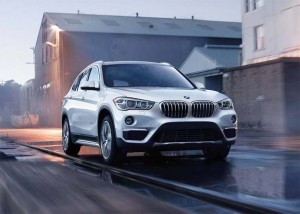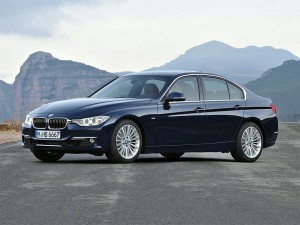Even as Volkswagen continues to face new problems related to its cheating on diesel emissions testing, other automakers are facing collateral damage.
The latest to be hit is BMW, the automaker confirming that it will delay the launch of its 2017 diesel models because U.S. regulators want to be sure they comply with federal emissions standards.
While the maker said there has been “no indication” that its oil burners don’t meet federal rules, the testing process has been delayed, according to various media sources, which will mean that models such as the 2017 BMW 328d sedan and xDrive35d won’t reach showrooms at the same time as the rest of the ’17 line-up.
(Three states accuse VW of cover-up in diesel scandal, file suit. Click Here for that breaking story.)
Industry analysts have warned that the Volkswagen scandal could permanently tarnish the reputation of diesels in the U.S. just as the technology was beginning to regain momentum after a 30-year lull.
Several manufacturers have had to reconsider plans for use of the high-mileage engines, notably including Mazda, which has already delayed the launch of its SkyActiv-D model in the U.S. for two years.
The question is whether the emissions scandal has damaged the German maker’s image or diesel’s image, said Robert Davis, Senior Vice President of U.S. Operations for Mazda North America. “We think the damage is to Volkswagen, but we’re still deciding” whether there’s enough demand for Mazda to finally launch a U.S. diesel.
(For more on Mazda’s diesel success in Japan and its delay in the U.S., Click Here.)
Mercedes-Benz, meanwhile, has come under fire from those who claim it has also rigged some of its diesel models. Hagens Berman Sobol Shapiro, a Seattle law firm that has filed a number of automotive class actions in recent years has two separate lawsuits in federal court targeting Mercedes.
So far, regulators both in the U.S. and Europe have said they’ve seen no clear evidence that any other automaker has intentionally used a so-called “defeat device,” software designed to detect when a vehicle is undergoing testing and then reduce emissions levels. But a number of models appear to produce significantly higher levels of pollutants, notably smog-causing oxides of nitrogen, in real-world use.
Federal regulators have been taking a much more cautious approach to testing procedures which have traditionally been done by manufacturers using a self-certification process. Several models from General Motors, including the new Chevrolet Colorado and GMC Canyon diesels, were delayed because of the added scrutiny, as were some 2016 BMW diesels.
“In light of recent events, agencies are taking longer to certify diesel models for the US,” BMW spokesperson Hector Arellano-Belloc told website AutoGuide, “but there has been no indication that BMW’s diesel models do not meet all requisite emission standards or that there is a defeat device in the vehicle.”
German makers have dominated the American diesel market in recent years, and the engines are found in about 6% of BMW products sold here. That is still well under the roughly 25% of the VW line-up that was powered by diesels before the emissions scandal broke last September.
VW has not been able to sell any of its diesels here since then, but it has given tentative indication to dealers that it hopes to at least have the larger 3.0-liter diesel model on sale by late this year – even though California regulators last week rejected a proposed fix.
(Why did the California Air Resources Board say no? Click Here for the story.)


